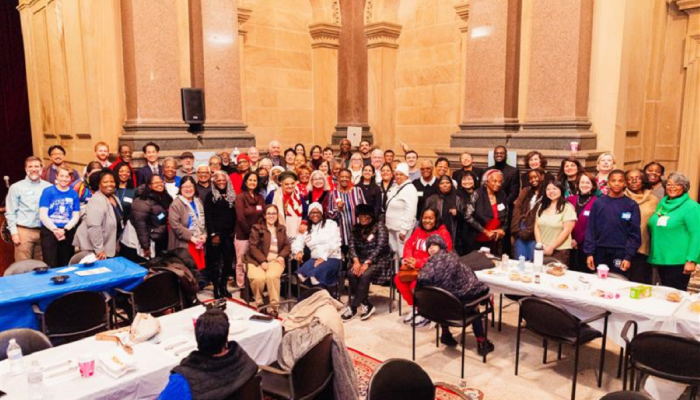You’ve heard it hundreds of times: Philadelphia is the poorest big city in America.
Philadelphia’s poverty rate is about 23 percent and has remained high despite years of growth in population, jobs, and development in the city. This disproportionately affects people of color and demands continued aggressive action.
As part of that effort, the Office of Community Empowerment and Opportunity (CEO) and the Division of Housing and Community Development (DHCD) teamed up with the Urban Institute to take part in the Upward Mobility Cohort. The cohort includes seven other counties from across the U.S. The first phase of this project concludes with today’s release of our Upward Mobility Action Plan for Philadelphia.
This plan builds on the insights of the US Partnership on Mobility from Poverty that upward mobility is not just economic success, but also belonging and autonomy. It reflects on metrics and data that look fully at barriers to upward mobility, including:
-
If Philadelphians have affordable housing,
-
if they can achieve financial well-being,
-
the quality of conditions in their neighborhoods,
-
if there are opportunities for good jobs,
-
and how Philadelphia compares to peer cities and towns.
You can explore these metrics on our data dashboard.
But this plan is different than what you might expect. It recommends four strategies for how Philadelphia creates and runs programs and policies focused on mobility. That’s because the Kenney Administration and City Council have published at least five reports in recent years on what the City should be doing. These include the Housing for Equity Plan, the Poverty Action Plan, A City Workforce Strategy, and others.
This Mobility Action Plan suggests that the City could better carry out the recommendations in those previous plans and achieve fairer outcomes for Philadelphians if it did the following:
Expand and improve the City’s data management and sharing
Strong, effective data collection and management and the use of client-level data can help the City improve access to programs and services for residents. Expanding and improving the City’s data management and sharing will help us design better and more targeted programs and track implementation more closely.
Strengthen departmental capacity for outcomes-based evaluation of upward mobility programming
The City has many policies and programs designed to boost upward mobility and address the causes and conditions of poverty. To know whether they are having the desired effect on upward mobility, Philadelphia must strengthen its ability to evaluate its programs, with a focus on outcomes for residents.
Improve the quality of equitable community engagement
Intentional and meaningful community engagement will allow residents to thrive by generating solutions to their problems, demonstrating how problems affect people in different ways, and helping build trust and civic infrastructure within communities.
Expand benefits access, cash assistance, and departmental collaboration around service delivery
Philadelphia can continue leading by growing access to benefits, shifting toward automatic and cross-enrollment in assistance programs, and advancing more flexible cash assistance programs. It can also remove barriers to access and advocate for similar efforts at the state and federal levels.
Of course, these strategic actions alone won’t be enough. We need meaningful policy changes and resources, such as:
-
making the 2021 expanded federal Child Tax Credit permanent,
-
increasing state and federal investment in housing,
-
increasing the minimum wage,
-
rebuilding the social safety net,
-
and more.
But while we continue advocating for those and other big policy changes, Philadelphia can improve its systems to better —and more equitably— invest in residents who are struggling.
Philadelphia strives to be a city where every resident is healthy, safe, and has economic prosperity and good quality of life. We aim to be an equitable city that eliminates barriers to health, safety, and connectedness that exist based on race and ethnicity, disability status, age, and gender identity. CEO and DHCD hope this Upward Mobility Action Plan contributes to the citywide efforts to achieve that vision.
Learn more about the recommendations for Philadelphia to improve its current programs and policies




